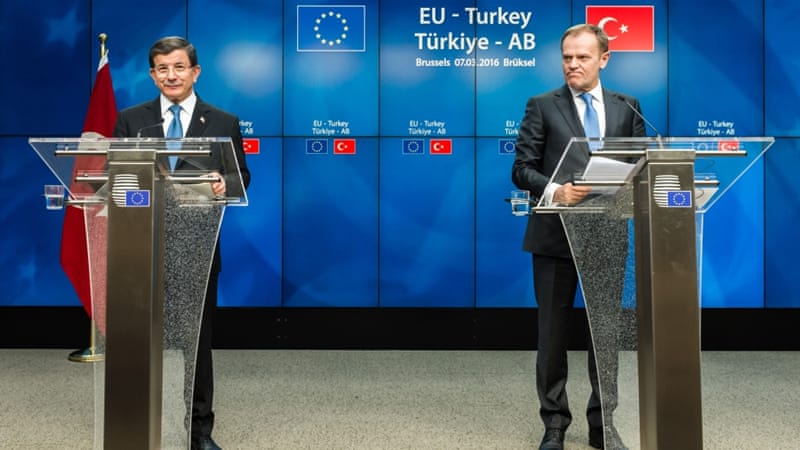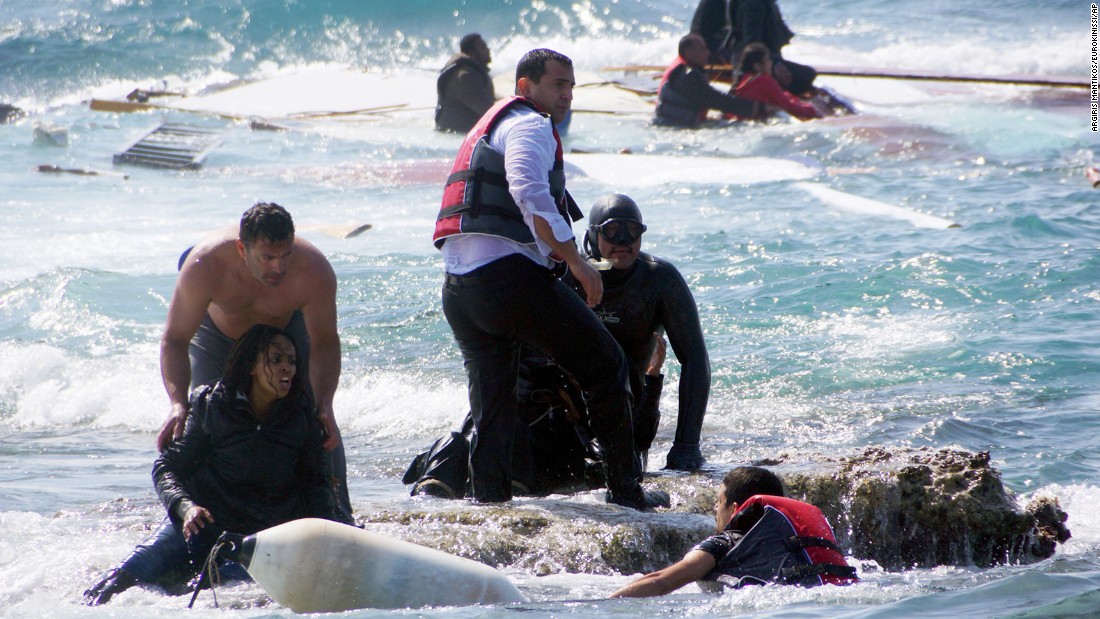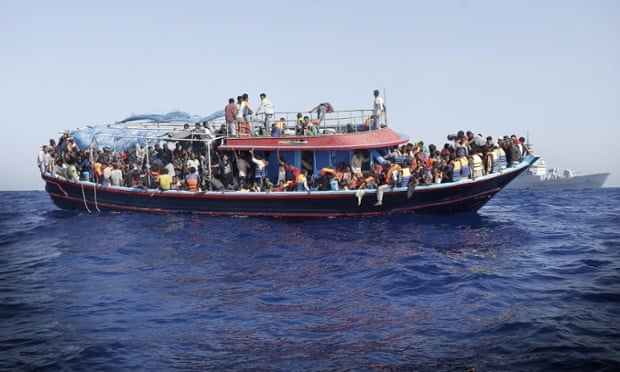[fblike]
 The European migrant crisis was arguably the biggest international news story of 2015. More than a million migrants poured into Europe last year, fleeing violence in Syria, Iraq, Afghanistan, and Libya. At first, European leaders such as German Chancellor Angela Merkel were welcoming of refugees, but the sheer number of new arrivals overwhelmed countries such as Greece and triggered a backlash, especially among conservatives that feared that the flood would radically alter Europe’s demographics and culture. The Parisian terror attacks in November, as well as accusations that refugees attacked women in Cologne, Germany, bolstered the case for limiting new arrivals and it appears that the European Union (EU) has reached a deal with Turkey to do just that. The deal calls for Turkey to take in refugees that fail to acquire asylum in Europe, while Europe will provide billions in aid for Turkey to deal with refugees. Also, Turkey’s aspirations of joining the EU have been revived, with the EU pledging to open new chapters in those delayed negotiations and promising that Turkish nationals will have access to the organization’s visa-free travel zone by June. However, skeptics say that this deal is unworkable from a logistics and legal point-of-view. They argue that Turkey is not safe for migrants and that the EU is absconding of its responsibility to help the world’s less fortunate.
The European migrant crisis was arguably the biggest international news story of 2015. More than a million migrants poured into Europe last year, fleeing violence in Syria, Iraq, Afghanistan, and Libya. At first, European leaders such as German Chancellor Angela Merkel were welcoming of refugees, but the sheer number of new arrivals overwhelmed countries such as Greece and triggered a backlash, especially among conservatives that feared that the flood would radically alter Europe’s demographics and culture. The Parisian terror attacks in November, as well as accusations that refugees attacked women in Cologne, Germany, bolstered the case for limiting new arrivals and it appears that the European Union (EU) has reached a deal with Turkey to do just that. The deal calls for Turkey to take in refugees that fail to acquire asylum in Europe, while Europe will provide billions in aid for Turkey to deal with refugees. Also, Turkey’s aspirations of joining the EU have been revived, with the EU pledging to open new chapters in those delayed negotiations and promising that Turkish nationals will have access to the organization’s visa-free travel zone by June. However, skeptics say that this deal is unworkable from a logistics and legal point-of-view. They argue that Turkey is not safe for migrants and that the EU is absconding of its responsibility to help the world’s less fortunate.
This topic brief will review major actors in the accord, the significant parts of the EU’s deal with Turkey, and assess the complications that could arise in making the deal work. Departing from its conventional topic brief format, this will try to get “more to the point” about some of the growing issues in the deal. Source links will be included at the end of the brief.
Readers are also encouraged to use the links below and in the related R&D to bolster their files about this topic.




 Here is today’s premium R&D to accompany
Here is today’s premium R&D to accompany  Extempers are aware of the United States’ illegal immigration problems, but another illegal immigration phenomenon has recently caught the attention of the international media: the travel of migrants from North Africa to Europe. While the migration of peoples from Africa and the Middle East to Europe is not a new phenomenon, growing border controls by nations within the European Union (EU) over the last decade has caused migrants to brave the waters of the Mediterranean Sea. Seeking refuge from political or religious persecution or a better economic future, migrants pay smugglers to take them to Southern European countries, which have argued that the EU is not doing enough to help them offset the cost of dealing with the problem. 2015 has already been a deadly year for migrants crossing the Mediterranean as 1,800 people have died making the journey compared with just 180 deaths in the first four months of 2014. On April 19, 900 migrants were thought to have been killed when their overcrowded vessel sank, prompting the EU to hold an emergency meeting in Luxembourg and triple the funding for border operations. Dealing with immigration is a sensitive issue in European countries, where far-right parties have linked excessive immigration with economic problems and claim that the different cultural backgrounds of migrants will erode the foundations of European society. Therefore, the problem is a test of the EU’s tolerance of helping the world’s less fortunate and its ability to work out an effective immigration system for its member states.
Extempers are aware of the United States’ illegal immigration problems, but another illegal immigration phenomenon has recently caught the attention of the international media: the travel of migrants from North Africa to Europe. While the migration of peoples from Africa and the Middle East to Europe is not a new phenomenon, growing border controls by nations within the European Union (EU) over the last decade has caused migrants to brave the waters of the Mediterranean Sea. Seeking refuge from political or religious persecution or a better economic future, migrants pay smugglers to take them to Southern European countries, which have argued that the EU is not doing enough to help them offset the cost of dealing with the problem. 2015 has already been a deadly year for migrants crossing the Mediterranean as 1,800 people have died making the journey compared with just 180 deaths in the first four months of 2014. On April 19, 900 migrants were thought to have been killed when their overcrowded vessel sank, prompting the EU to hold an emergency meeting in Luxembourg and triple the funding for border operations. Dealing with immigration is a sensitive issue in European countries, where far-right parties have linked excessive immigration with economic problems and claim that the different cultural backgrounds of migrants will erode the foundations of European society. Therefore, the problem is a test of the EU’s tolerance of helping the world’s less fortunate and its ability to work out an effective immigration system for its member states. Here is today’s premium R&D to accompany
Here is today’s premium R&D to accompany